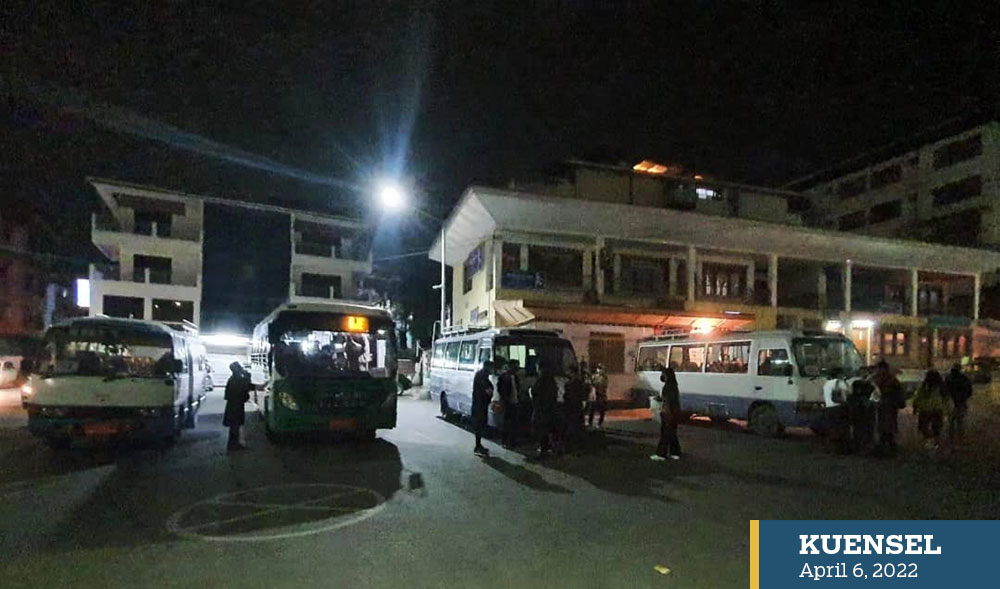Yangyel Lhaden
City buses in Thimphu thromde on April 4 have started operating night trips until 10.30pm.
The night trips will start at 7.30pm with five buses on five routes: Dechencholing via Pamtsho, Babesa via Olakha, Motithang via Changidaphu and Olakha, Lungtenphu via Ngabiphu, and Motithang via Zilukha and Changidaphu.
City Bus Service’s (CBS) Manager, Sangay Dorji, said that city buses would take an hour to complete one route. “Depending on public feedback and demand more buses could be deployed.”
He said that the night operation of city buses is to help those from low-income groups working late at night avail cheaper transport. “Shops and hotels close by 10pm and we want to make transportation for them safe and accessible.”
“We have briefed the drivers to be in their best manner so that passengers feel safe and the management will take strict action if any driver is found misbehaving,” he added.
To improve public transport in the city, CBS launched 27 new buses in November last year equipped with a global positioning system (GPS) and facilities like smart card readers, connected with the Gakyid Ride application which shows bus schedules and real-time location of buses. There are 68 buses with CBS.
Sangay Dorji said that old buses were also installed with GPS and smart card readers. “There are 47 buses operating during the day.”
Smart card readers are used in buses to calculate the distance and deduct fares accordingly.
Sangay Dorji said that the base price for a ride is Nu 5 with additional Nu 1 for every bus stop. “People paying cash would have to pay Nu 5 extra for every zone.”
To encourage people to use smart cards, CBS charges extra for people paying cash. Sangay Dorji said that smart card was introduced to reduce revenue leakage. “With the introduction of smart card, the income with CBS increased by 30 percent.”
He said that the management aimed to earn more than 60 percent of income when schools resume fully. “We have stopped dedicated buses for school with improved bus routes and frequency. While some bus stops are in front of schools, however, some students would have to walk less than 5 minutes to school from bus stops.”
CBS has sold 688 regular cards, 378 student cards, 40 senior citizen cards, and 34 persons with disabilities. CBS aims to sell more than 10,000 smart cards. Smart cards are available for purchase at the CBS office and its authorised agent, Paysap.
Sangay Dorji said that management was also looking forward to introducing a temporary card valid for a day which would cost between Nu 50 and Nu 100.
To meet the driver shortage, in collaboration with the labour ministry 19 individuals are attending nine months of training in heavy vehicles at the technical training institute. They are expected to graduate by the end of this year.
Sangay Dorji said that with the introduction of GPS and smart cards, 23 conductors were at risk of losing their job. “Nine conductors including seven women, are training to be bus drivers.”
He said that the other conductors were absorbed by the office as supervisors, poll-in charge and with smart card division.


